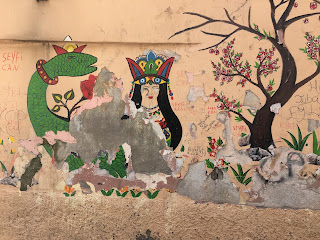2020 SPF Conference
May 22nd& 23rd 2020
Irish Centre for Human Rights,
National University of Ireland, Galway
At stake in framing the theme of this conference in terms of ‘the sexual politics of freedom’as opposed to ‘the politics of sexual freedom’is to draw our attention to the ways in which the politics of freedom has always been implicated in sexual politics (Bhattacharyya 2008, Butler 2016, Kapur 2018). Such a sexual politics is rooted in the histories of colonialism, secularism, and progress and attuned to a temporality and geography of European “civilization” and liberalism (Mohanty 1988, Spivak 1993). Such a political logic has onto-epistemologically placed limits upon our capacities to imagine a politics of freedom. The hegemonic account of liberal feminism which pervades discourse on human rights, justice and equality, both within and outside the academy, has meant that much of our scholarship and theorising has taken place in the shadow of, and in response to this liberal rendering of feminist politics. Such a fact has meant, we have engaged in a logic of self-sabotage, preventing us from thinking critically about and articulating, on our own terms, new forms of feminist struggle for freedom (Phillips 2019).
With this conference, we hope to explore and begin to address this problematique, refusing the questions posed of women who do not conform to the liberal ideal of “female” freedom, as to why they would “subject” themselves to a life within a so-called “patriarchal order.” Such an experience is one many of us who research and write about the lives of women living in the non-European ‘World’ encounter on a regular basis in explaining and analysing why freedom for these women need not align with gender- and identity-neutral onto-political presuppositions of liberal subjectivity and the hegemonic paradigm of human rights discourse (Alcoff 2006). At stake, still, is the problem of subalterneity, and the location of such women in the place of “disappearance,” which Spivak (1988) describes as ‘the violent aporia between subject and object status.’
Taking our lead from the work of Saba Mahmood and Lila Abu-Lughod, we raise the question of the sexual politics of freedom from a non-Kantian conception of ethics as Idea (Colebrook 1998), exploring rather, the ethical lives and practices of women struggling for freedom. Such an approach, inspired by Mahmood (2005/12) and Foucault (1988, 1989) opens up a space for us to understand more clearly how practices – ethical, religious, social, and political – are concerned not simply with the regulation of life, but the constitution of an embodied form of agency and subjectivity which is particular to its own contexts and conceptions of freedom.
What can a feminist politics of freedom that centres and begins with the experiences, lives and struggles of women look like (Narayan & Harding 2000)? What would our thinking and research become if the work of post-colonial feminists and the experiences (cf. Alcoff and Potter 1993) of non-European women were not an afterthought (Bhambra 2014), a footnote, a feature of the Undercommons (Moten and Harney 2013), a final lecture to be rushed through before exam preparation? At stake in short, is an invitation to scholars and activists motivated by any of the concerns and provocations raised here, to assemble, accompany one another, think together, and engage in critique concerning the sexual politics of freedom.
The Irish Centre for Human Rights, at the National University of Ireland - Galway, invites potential participants from across the disciplinary spectrum to submit papers of 20 minutes duration.
· Frames of recognition and apprehension
· Feminist Epistemologies
· Epistemic injustice
· The myth of “neutral objectivity”
· Re-thinking the basis of feminist solidarity
· Ethics, gender and embodiment
· Feminism in and outside of the “teaching machine”
· Challenges for contemporary human rights practice
· The politics of sexual time
· Feminist practice beyond Eurocentrism
· Sec(x)ularism and Islamophobia
· Theorising subject formation
· Differential allocations of grievability
· Feminist conceptions of freedom
· Feminist solidarity
· Sex, gender and rights
Keynote Speakers
Ratna Kapur is Professor of International Law at Queen Mary University, London. She has written extensively on issues of human rights, with a specific focus on women’s rights, the rights of migrants, sex workers, and religious minorities. She has also written about various aspects of Indian Constitutional law, in particular, the politics of secularism, the right to religious freedom, and equality.
Her current research interest is on developing a critique of freedom in human rights law and exploring other non-liberal emancipatory possibilities.
Ratna is the author of Erotic Justice: Law and the New Politics of Postcolonialism (2005), as well as Makeshift Migrants and Law: Gender, Belonging and Postcolonial Anxieties (2010) and most recently Gender, Alterity and Human Rights: Freedom in a Fishbowl (2018).
Linda Martín Alcoff is Professor of Philosophy at Hunter College, City University of New York Graduate Center, where she researches and teaches in the fields of continental philosophy, feminism and decolonial theory.
Her writings have largely focused on social identity and race, colonialism, epistemology and the politics of sexual violence, as well as Foucault, Dussel, and Latino issues in philosophy.
She has written several books, including Visible Identities: Race, Gender and the Self (Oxford 2006) as well as Real Knowing: New Versions of the Coherence Theory (Cornell 1996). Linda's most recent book Rape and Resistance: Understanding the Complexities of Sexual Violation was published by Polity Press in 2018.
Linda is best known in Europe for her work in the field of feminist standpoint epistemologies, and associated for many of us with her book Feminist Epistemologies co-edited with Elizabeth Potter (Routledge, 1993).
Programme
Book of Abstracts



Comments
Post a Comment